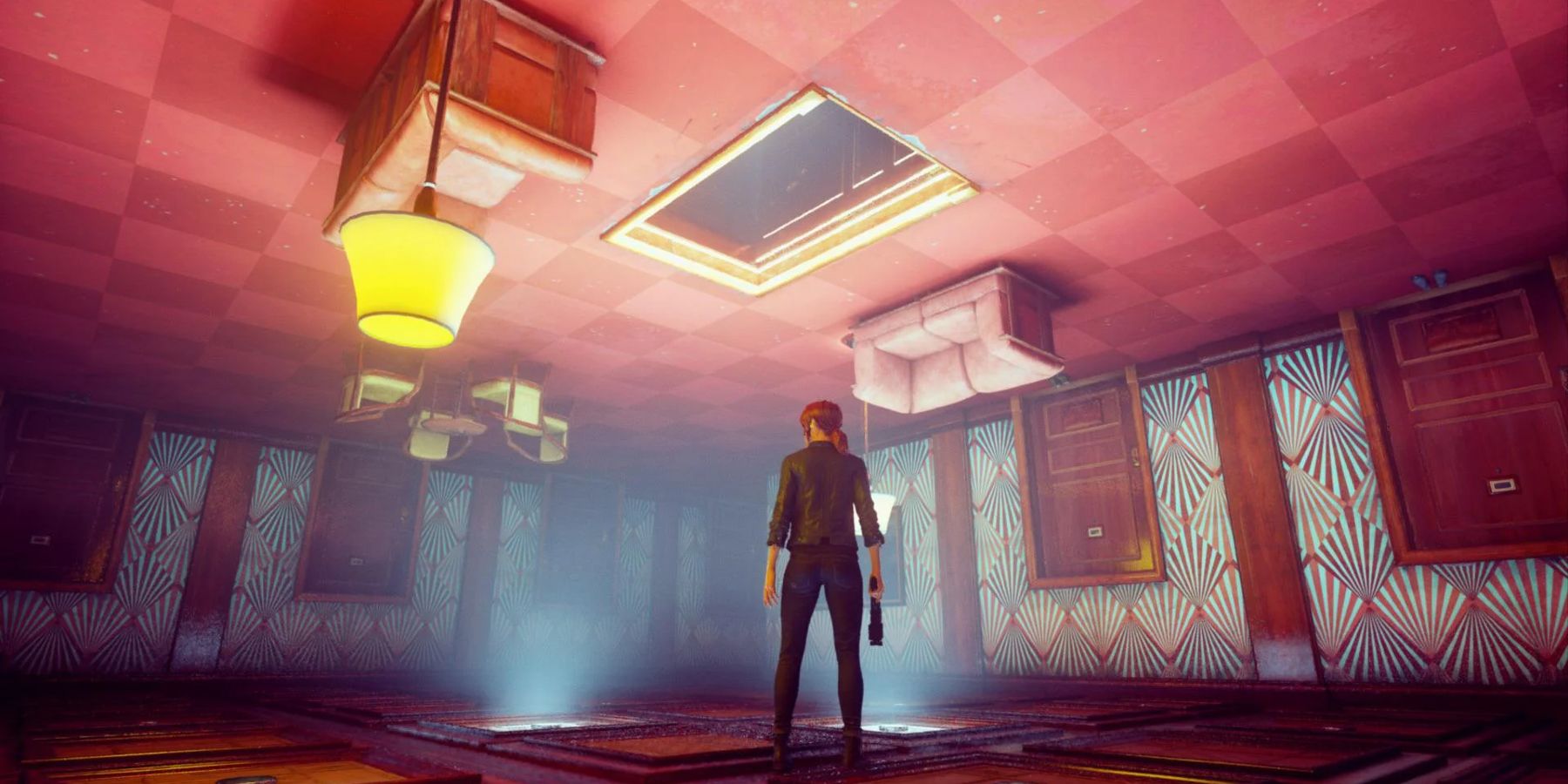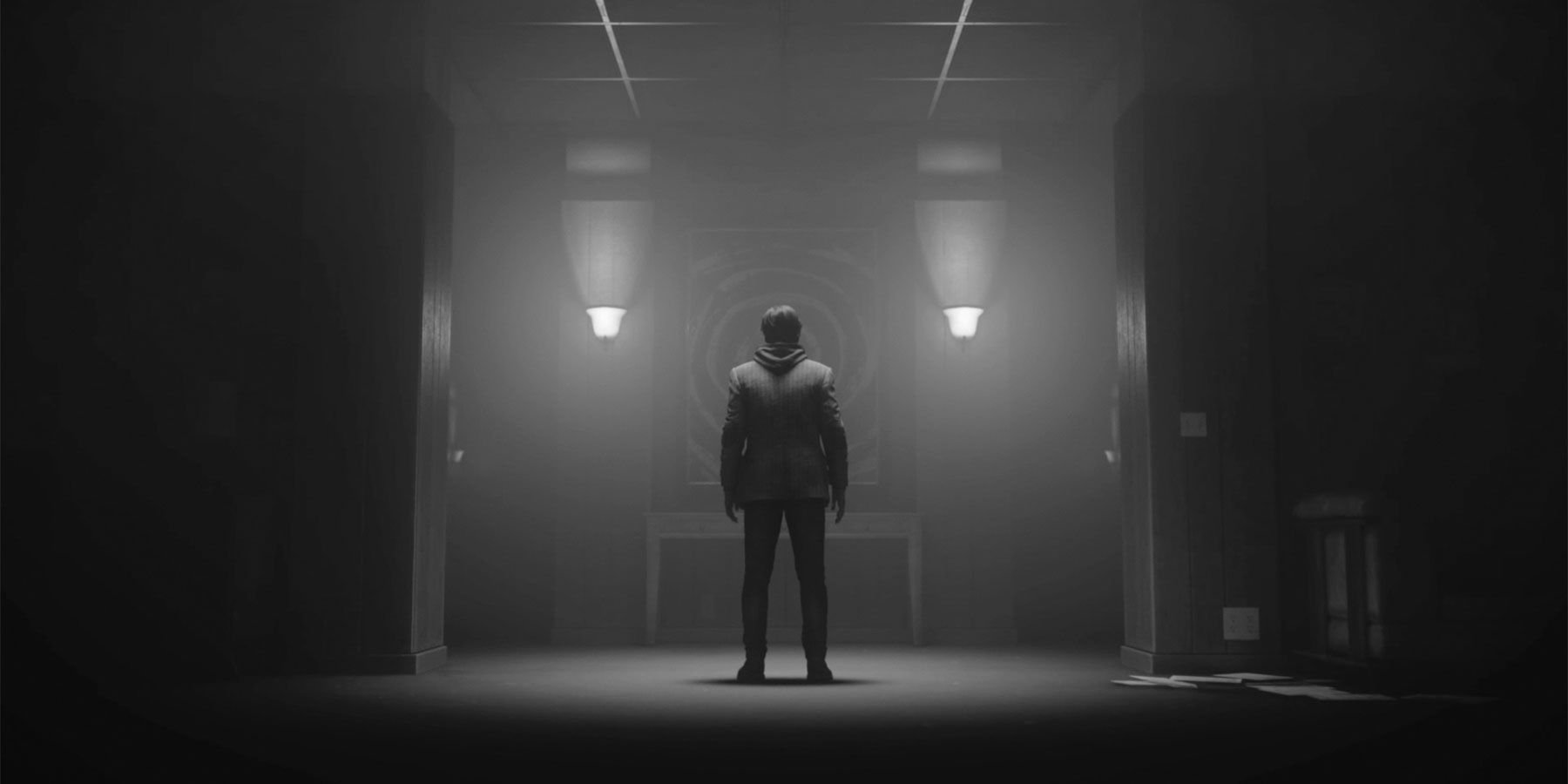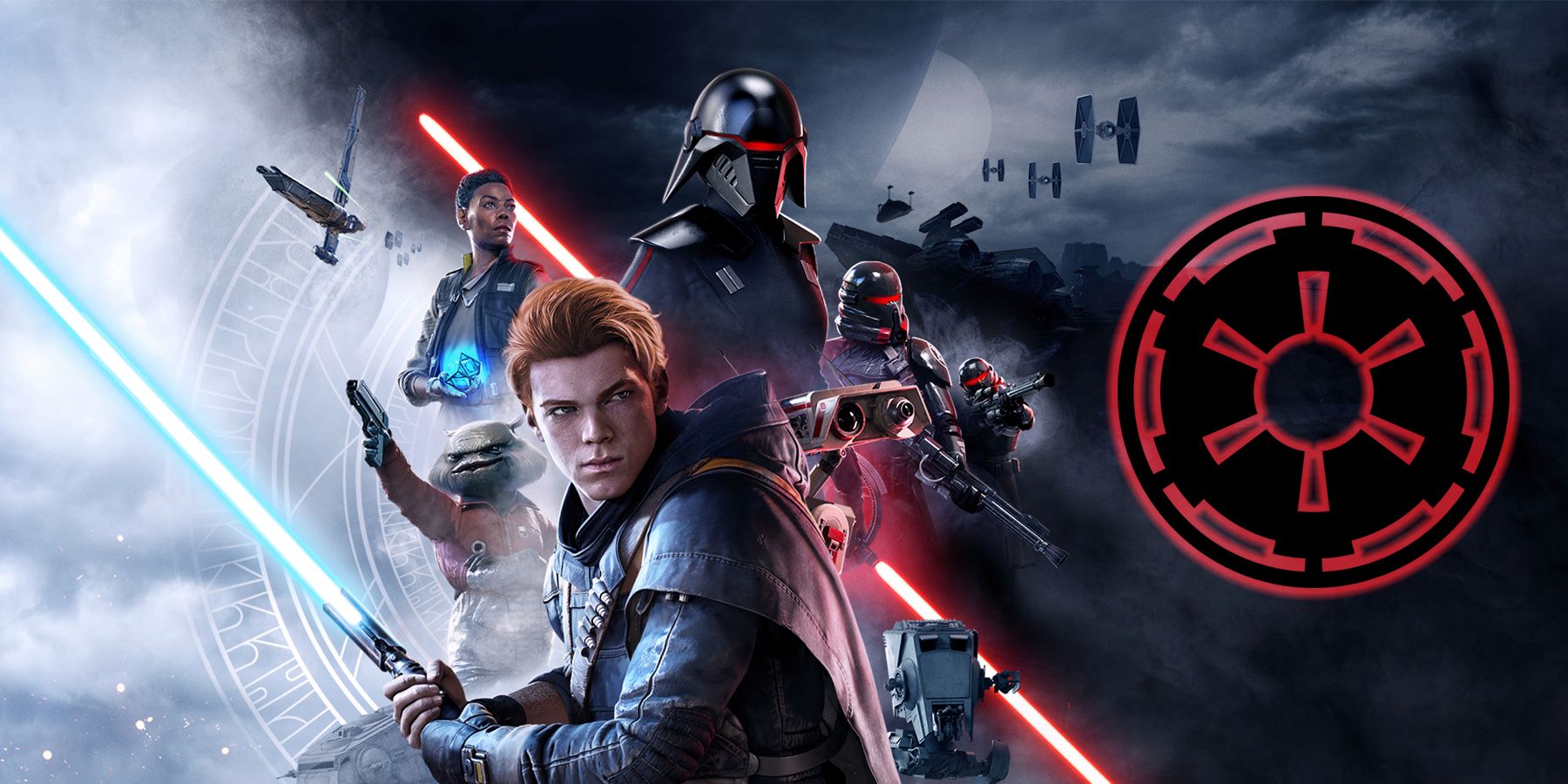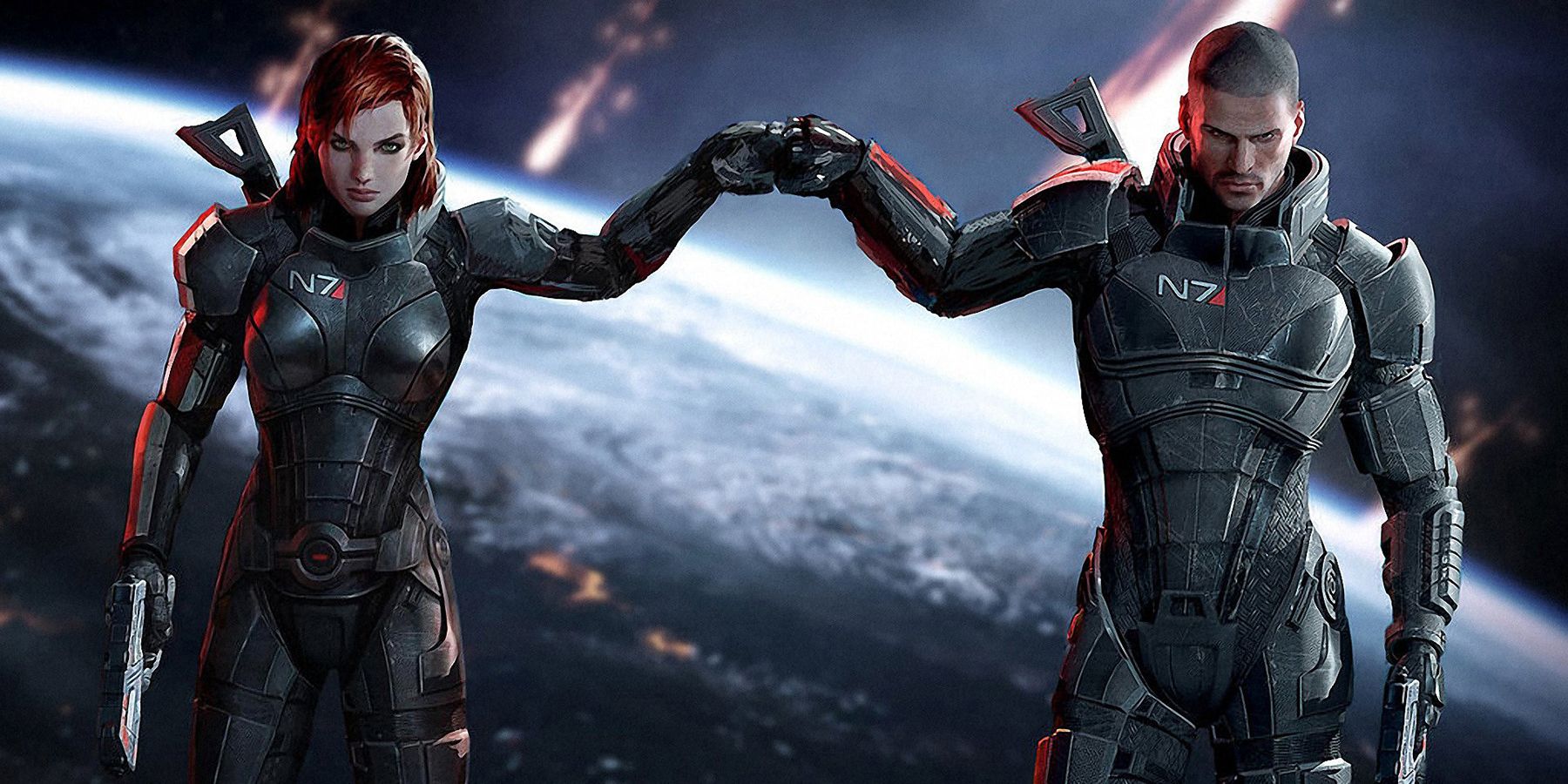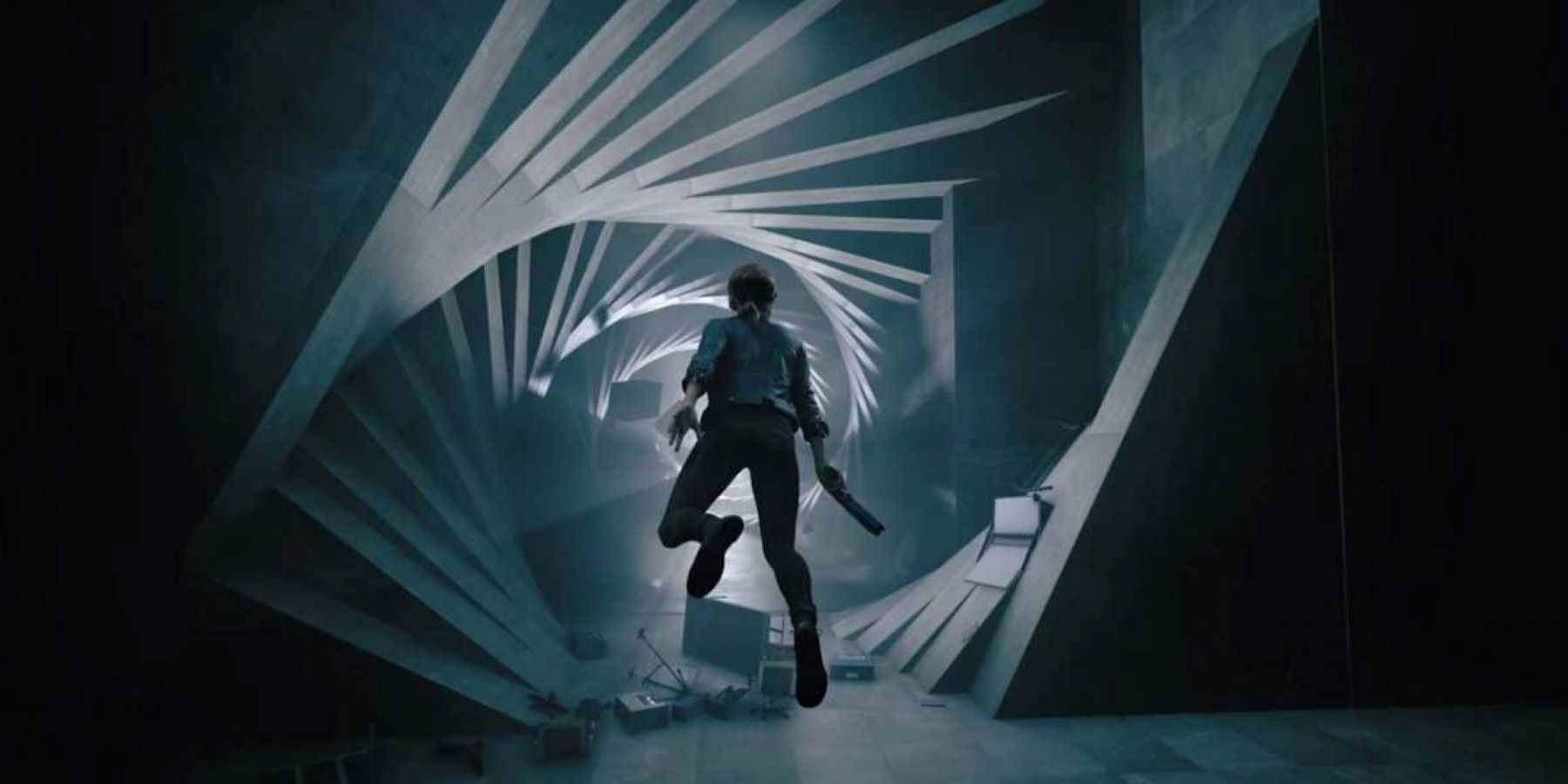Worldbuilding in video games is a crucial part of the player's experience. Lore blurbs, NPC conversations, and the environment itself tell the history of the world to a player. Even background music can set the tone of an area, but Remedy Entertainment uses a specific kind of track to enhance its games: in-universe music.
Despite the budgets and talented artists employed to produce background tracks, few games take full advantage of the worldbuilding potential offered by music: the chance to use songs created within the world to both set the mood and give players a tangible piece of culture. Few studios have used such tracks to better effect than Remedy in titles like Alan Wake and Control.
Remedy's Success with In-World Music
Alan Wake not only features fitting vocal tracks at the end of each chapter, but has major plot points told through the songs. "The Poet and the Muse" is performed by an in-world band whom Alan meets on multiple occasions, the Old Gods of Asgard. This group is portrayed by the real-world band Poets of the Fall. Another Old Gods track, "Children of the Elder God," serves as the fight song heard by both Alan and the player as a major battle is fought on an abandoned concert stage. Most players asked to recall the 2010 action-horror game will likely remember both these instances as highlights.
Poets of the Fall reprise their role both as Old Gods of Asgard, and appear as themselves, in Control, which shares a universe with Alan Wake. The music of Old Gods once again serves as a major plot point, with the main character Jesse Faden using a Walkman given to her by the mysterious and powerful FBC janitor Ahti and blasting "Take Control" to progress through an otherwise inaccessible area of the Oldest House.
Additionally, one of the altered objects found in the FBC is a recording of "My Dark Disquiet," a high-power song thematically connected to both Polaris and Jesse Faden. These pieces not only reinforce the story and the surreal atmosphere of Control, but go a long way to making the world of floating corpses, aggressive refrigerators, and talking spacesuits seem more grounded to the player.
Other Studios Have Found Success with In-World Music
Such feats of lyrical worldbuilding are hardly limited to the Remedyverse. Jedi: Fallen Order opens with the player character, Cal Kestis, listening to "Sugaan Essena" performed by The Hu. Later during a gladiatorial brawl, Cal even comments that he recognizes the band's music as it starts blaring out of the arena's speakers. Fallout 4, in addition to the famous radio stations of the Fallout games, lets the player lounge around the Third Rail bar and listen to the performances of Magnolia, whose life story is told through the lyrics of her songs.
Cyberpunk 2077's song "Chippin' In" calls back to the roots of the tabletop game, hits on major story beats, and serves as a kind of anthem for solos. CD Projekt Red found previous success with this technique in one of the Witcher 3's most poignant moments using the performance of "The Wolven Storm" by Priscilla the Callonetta. The game's Hearts of Stone DLC heightens the uneasy dread surrounding Master Mirror with a creepy children's rhyme sung about the DLC's quasi-antagonist.
Perhaps the only studio to match Remedy in their use of in-world music is Supergiant, which has employed this technique in all of its games. Bastion's "Build that Wall," Transistor's "All Become One," Pyre's "Never to Return," and Hades' "Good Riddance" are just a few highlights from the list of songs performed to both the player character and the player themselves, standing out even among the incredible instrumental music of Supergiant's games. In every case where this method is used, the song typically serves as a piece of the world's culture, a memorable gameplay moment, and a background music.
More Games Need In-World Music
The original Mass Effect trilogy painted one of the richest science-fiction settings in gaming, complete with an intricate political web, detailed explanations of how each species designed their ships and weapons, and even bits of cultural exchange like the all-Elcor production of Hamlet. Despite this, though the games featured numerous nightclubs full of pumping instrumentals, not once did the player encounter an example of an original vocal performance.
The opportunities for such tracks were great; every species could have brought a different style and subject to the table. Few players would say no to a Turian military anthem, a Krogan battle march, or a Quarian lament for their home world. Even a quick snapshot of what humans are producing in the 22nd Century would be of keen interest, to say nothing of the comparison between songs from Earth and colony worlds like Elysium.
In a more recent endeavor, Elden Ring's vast world is largely based upon Nordic mythology and featuring instrumental tracks that maintain FromSoftware's track record for audio excellence. It could have made extensive use of oral ballads and poems which are heavily linked to Norse tradition, and FromSoft's heavy use of choirs in boss themes show they are no strangers to reinforcing their music with vocal accompaniment. Yet, even with George R.R. Martin on-hand to provide lyrical and poetic content, no one is singing mournful tales of the Shattering even when the nomadic merchants are commonly seen playing instruments.
There are Challenges to using In-World Music
There are a few challenges to incorporating grand music into games. One could make the argument that the language barrier would either lock out a section of the international audience or require multiple costly versions of the same song to be produced. However, the prevalence and wide international success of music like popular anime opening songs makes this argument ring somewhat hollow.
Another potential objection would be the cost of hiring vocalists and lyricists; this has also been refuted by the success of artists like Gavin Dunne (aka Miracle of Sound), an independent producer whose work has been featured in both Wasteland 2 and Subnautica: Below Zero. Contracting out to smaller artists such as Dunne with expansive libraries of popular work could greatly mitigate the financial risks of featuring in-universe music. Some of video games' most memorable segments use original vocal tracks, both enhancing the world and the experience of the player. If more studios took the initiative and followed the lead of Remedy Entertainment and Supergiant, similar success could follow.

